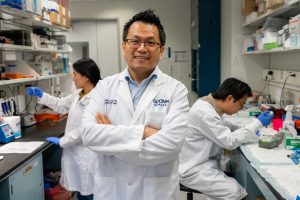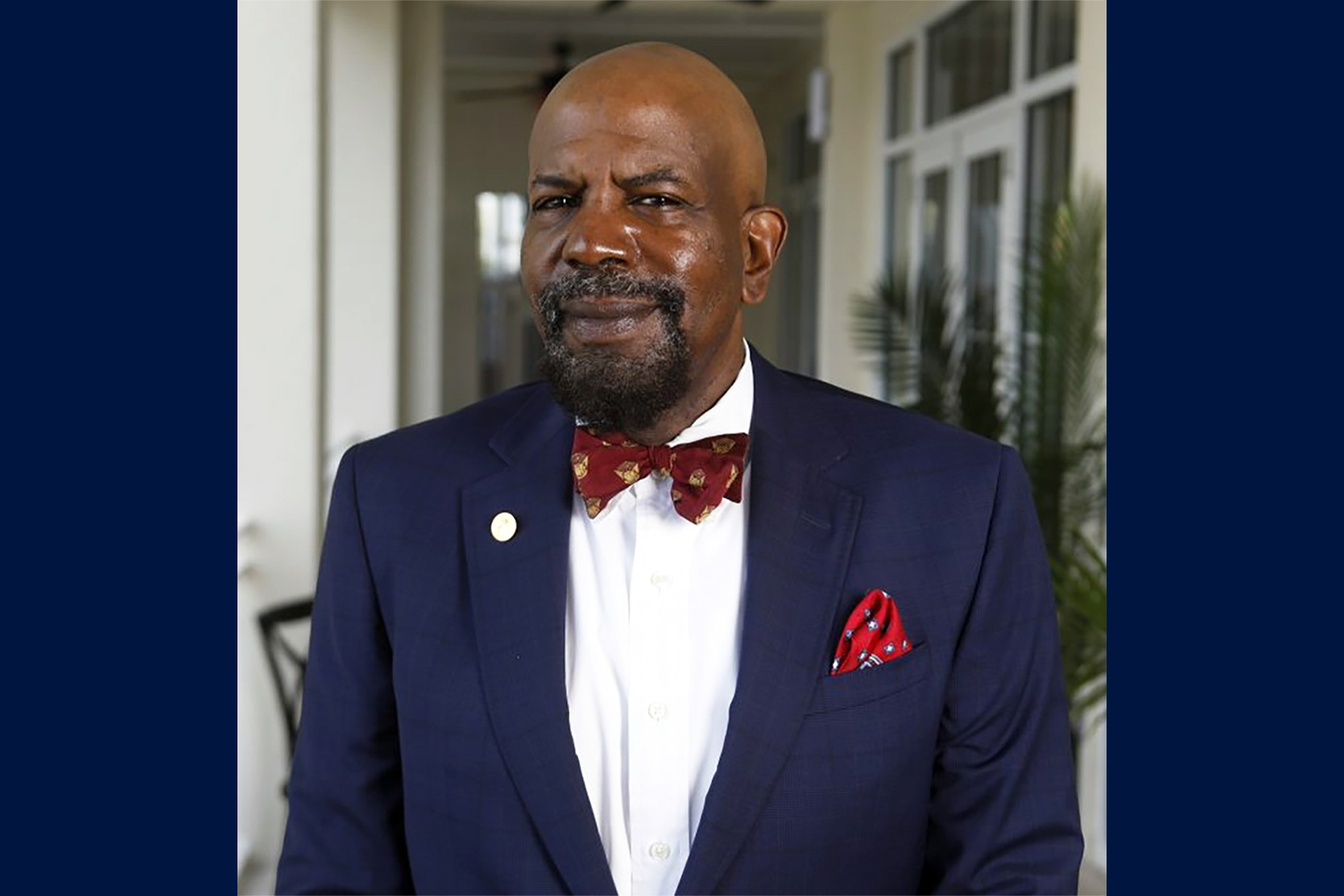Live Longer, Die Healthier
Everyone wants to live to a ripe old age, but no one wants to be decrepit. Now, University of Connecticut researchers have demonstrated a treatment that could lengthen life—and vigor—up to the very end.
Even as human lifespans have lengthened over the past century, most people in old age suffer a serious health decline in the last decade of life. Chronic illnesses such as cancer, diabetes, or cardiovascular disease may begin, followed by frailty. Many interventions can prolong life, but not necessarily good health. And nobody wants to spend the last years of an extra long life in decrepitude.

But that frail decline may not be inevitable. In the Aug. 6 issue of Cell Metabolism, UConn School of Medicine gerontologist Ming Xu describe how a group of mice lived 9% longer when they received monthly treatments. That equates to about 79 days extra for mice. But the striking thing was not just that the mice lived longer, but that they could walk faster and grip objects with greater strength than untreated mice of the same age. In humans, slowed walking speed and weakened grip are tightly correlated with increased overall frailty. The treated mice retained their strength and walking speed up during the whole treatment period until the very end of their lives.
The research is particularly significant because of the painstaking measurement and record keeping this project required. Most experiments on mice, health, and longevity pick a certain end point in time—18 or 24 months—and measure the effect of the treatment at that specific endpoint. But Xu, along with postdocs Binsheng Wang and Lichao Wang and their colleagues, measured the health, grip strength, and walking speed, along with a bevy of additional metrics, on the mice monthly from the time the mice were 20 months old (equivalent to 60 year old humans) until death. Some mice lived as long as 43 months. By doing this, they could assess the physical function and overall health changes of each mouse throughout the entire treatment period. Since each mouse died at a different age, this approach also allows Xu’s team to evaluate health status in the time leading up to death, which often represents the frailest and sickest stage of life.
Excitingly, they found that even though the treated mice were older at the time of death, their physical function and robustness overall were better than those of the controls during their last stage of life.
“We are all very excited about this finding, because it demonstrates that we not only extend the lifespan, but indeed extend the life with good health in mice, which is a key goal for the aging field,” says Xu, assistant professor of the UConn Center on Aging and the Department of Genetics & Genome Sciences at UConn School of Medicine.
The researchers used two groups of mice. One group received monthly treatments to remove highly inflammatory cells from their tissues; the control group did not. ‘Highly inflammatory cells’ were defined as those actively expressing a specific gene called p21.
The team, including researchers from UConn Health, The University of Texas, Cedars-Sinai, The Jackson Laboratory for Genomic Medicine, and the UNMC College of Dentistry, found the monthly treatments extended both the maximum lifespan of mice—the oldest treated mice lived to be 43 months, equivalent to about 130 years old as a human—as well as the average lifespan, so that the average treated mouse lived longer, and healthier, than the average untreated mouse.
The researchers are now working on a way to translate their results to humans. If the treatment works as well for humans, it would be equivalent to 8 to 10 additional years of healthy old age.
This research was primarily supported by the NIH National Institute on Aging, American Federation for Aging Research (AFAR), and Hevolution Foundation.
Latest UConn Today
- Professor Sir Cato T. Laurencin is Plenary Speaker at AAMP ConferenceUConn Professor Sir Cato T. Laurencin was the Plenary Speaker at 39th Annual Association for Academic Minority Physicians, Inc. Conference in Alexandria, VA.
- Insufficient Sunlight Exposure Linked to Higher Rates of SuicideThis study from UConn health economist Shinsuke Tanaka is a major addition to the literature on suicide risk factors as suicide remains the only major cause of death in the U.S. that is increasing rather than decreasing over time
- RNA Tech Could Make Fast Test for Alzheimer’s DiseaseWith Alzheimer's beginning well before symptoms appear, early detection would be a crucial benefit for patients and doctors
- Power of the Pause Celebrates Menopause Equity, Joy and CommunityHundreds from Across Connecticut Gathered for the Free Community Event Hosted by the UConn Health Disparities Institute
- Professor Berger-Walliser Tells Magazine that a Love of the Arts Can Pair Well with a Career in Business“I was considering a career as a professional recorder player. I entered competitions, and at age 16, I took private lessons with a professor in a School of Fine Arts, which was a two-hour train ride away from where I lived. I was pretty committed to the arts, but I was also drawn to history, politics, and languages, which got me interested in international law.”
- UConn Health’s Myasthenia Gravis Program: Giving Patients their Life BackUConn Health’s Comprehensive Myasthenia Gravis Program is helping patients rediscover strength and independence through advanced, compassionate care. For many, it’s more than treatment - it’s getting their life back.












